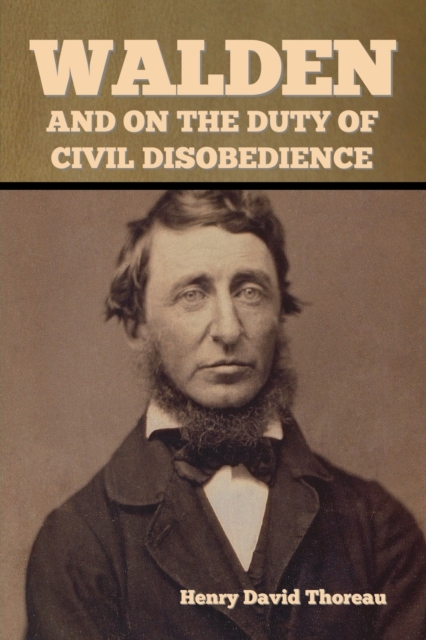
Walden, and On the Duty of Civil Disobedience Paperback / softback
by Henry David Thoreau
Paperback / softback
Description
Henry David Thoreau (see name pronunciation; July 12, 1817 – May 6, 1862) was an American essayist, poet, and philosopher. A leading transcendentalist, he is best known for his book Walden, a reflection upon simple living in natural surroundings, and his essay "Civil Disobedience" (originally published as "Resistance to Civil Government"), an argument for disobedience to an unjust state.
Thoreau's books, articles, essays, journals, and poetry amount to more than 20 volumes. Among his lasting contributions are his writings on natural history and philosophy, in which he anticipated the methods and findings of ecology and environmental history, two sources of modern-day environmentalism. His literary style interweaves close observation of nature, personal experience, pointed rhetoric, symbolic meanings, and historical lore, while displaying a poetic sensibility, philosophical austerity, and attention to practical detail. He was also deeply interested in the idea of survival in the face of hostile elements, historical change, and natural decay; at the same time he advocated abandoning waste and illusion in order to discover life's true essential needs.
He was a lifelong abolitionist, delivering lectures that attacked the Fugitive Slave Law while praising the writings of Wendell Phillips and defending the abolitionist John Brown. Thoreau's philosophy of civil disobedience later influenced the political thoughts and actions of such notable figures as Leo Tolstoy, Mahatma Gandhi, and Martin Luther King Jr.
Thoreau is sometimes referred to as an anarchist. Though "Civil Disobedience" seems to call for improving rather than abolishing government—"I ask for, not at once no government, but at once a better government"—the direction of this improvement contrarily points toward anarchism: "'That government is best which governs not at all;' and when men are prepared for it, that will be the kind of government which they will have." (wikipedia.org)
Information
-
Out of stock
- Format:Paperback / softback
- Pages:208 pages
- Publisher:Bibliotech Press
- Publication Date:21/09/2020
- Category:
- ISBN:9781636371269
Other Formats
- Paperback / softback from £5.50
- PDF from £2.47
- Hardback from £13.99
- eAudiobook MP3 from £18.71
- EPUB from £0.99
Information
-
Out of stock
- Format:Paperback / softback
- Pages:208 pages
- Publisher:Bibliotech Press
- Publication Date:21/09/2020
- Category:
- ISBN:9781636371269






